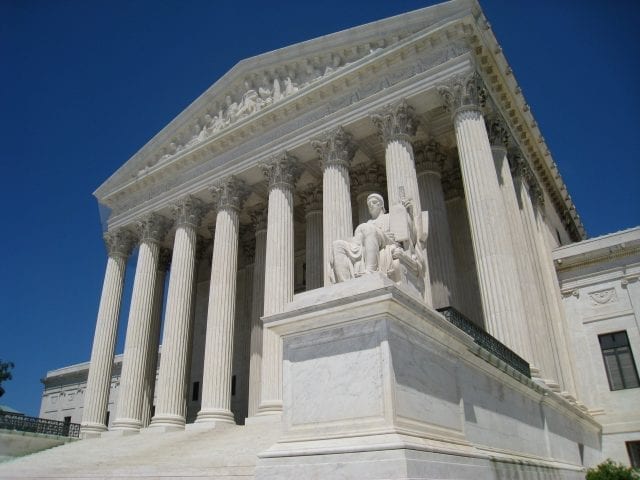Justice Brett Kavanaugh is emerging as a potential swing vote in a very partisan court.
The Supreme Court is considering a civil rights lawsuit filed by the family of a Mexican teenager who was shot by a Border Patrol agent standing on the American side of the Rio Grande.
At issue is whether foreign nationals can file civil rights lawsuits against the U.S. government for alleged violations which took place outside the United States. So far, Reuters suggests the Supreme Court is split. Recently-appointed Justice Brett Kavanaugh—whose appointment attracted massive controversy—may cast a potentially pivotal vote.
According to Reuters, the Supreme Court heard arguments in the family’s appeal of a lower court ruling, which had dismissed their cases against U.S. Border Patrol Agent Jesus Mesa.
Mesa, recounts Reuters, ‘had fired across a concrete spillway into Mexico from the Texas side of the border during a 2010 incident,’ killing 15-year old Sergio Adrian Hernandez Guereca.
The Trump administration is providing support and counsel for Mesa and the Border Patrol. The White House’s official stance is that allowing foreign families like Hernandez Guereca’s to sue the United States could create novel national security problems and complicate international relations.

And it’s issues like this which could test the court’s impartiality. Reuters says the bench’s conservative majority appears almost wholly inclined towards the Trump administration’s argument. But their liberal colleagues worry that unilaterally turning down the family’s suit could leave foreign nationals without recourse against blatant abuses committed by government actors.
Kavanaugh, though, has expressed some sympathy for both sides, observing that foreign policy considerations may arise even when a Mexican national is shot inside the United States itself.
Reuters writes that the ‘dispute hinges on whether the family, despite Hernandez having died on Mexican soil, can seek monetary damages against what they call a “rogue” agent for violating the U.S. Constitution’s Fourth Amendment, which bars unjustified deadly force as well as Hernandez’s right to due process under the Constitution’s Fifth Amendment.”
Chief Justice John Roberts has vocally supported the government narrative, saying that, if Mesa has already been cleared by an internal investigation, the courts shouldn’t interfere.
“I thought the country was supposed to speak with one voice,” Roberts said.
However, Elena Kagan suggested that refusing to consider other narratives can undermine American credibility at home and overseas.
“We live in a country where courts play an important role in determining whether conduct is lawful,” Kagan said. “And that is not an embarrassment to the United States or the executive branch.”
Sources
Supreme Court appears split in case of Mexican teen killed by US agent in cross-border shooting
Supreme Court weighs whether Mexican family can sue in US
U.S. Supreme Court divided on Mexican cross-border shooting dispute


Join the conversation!